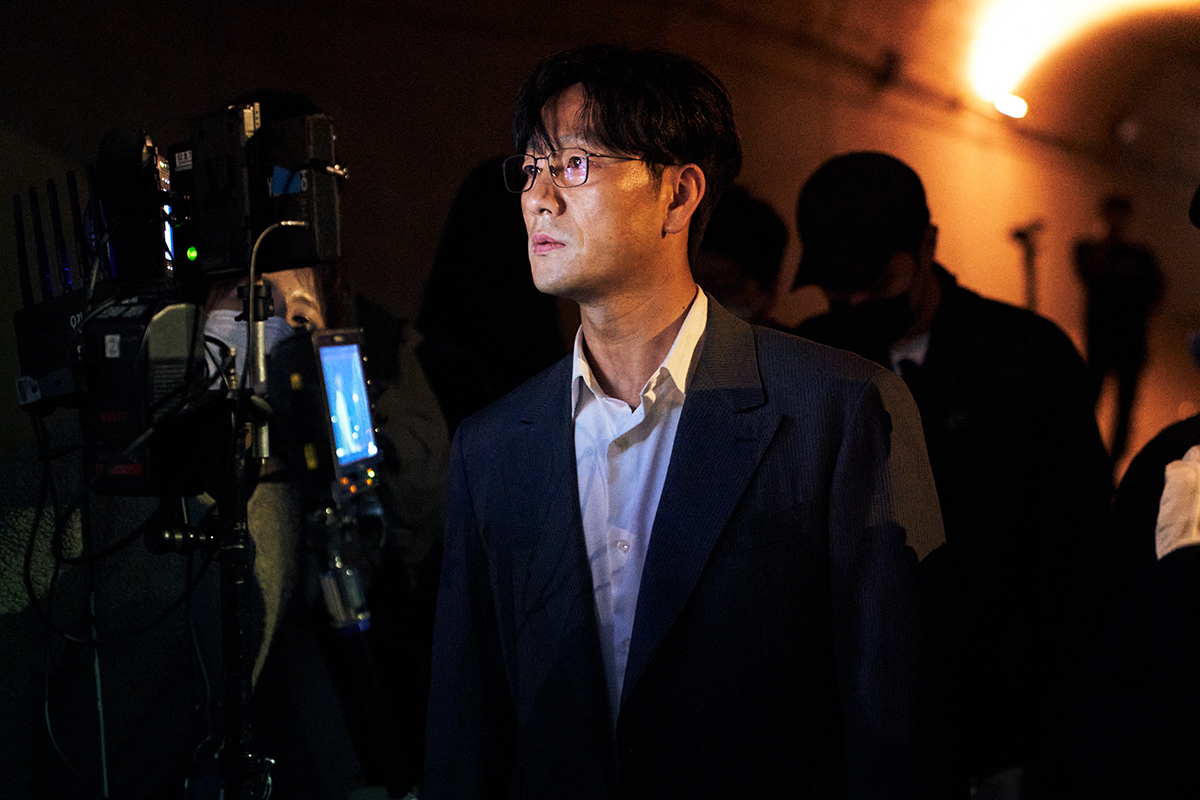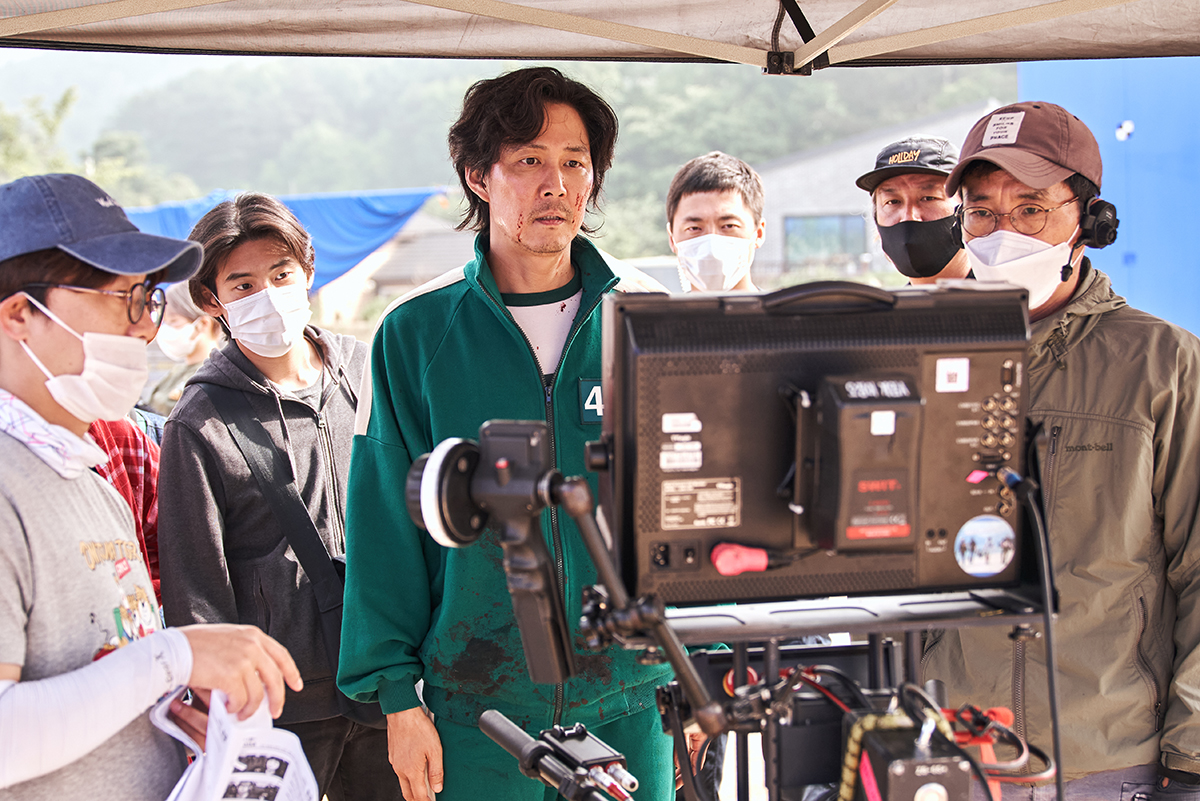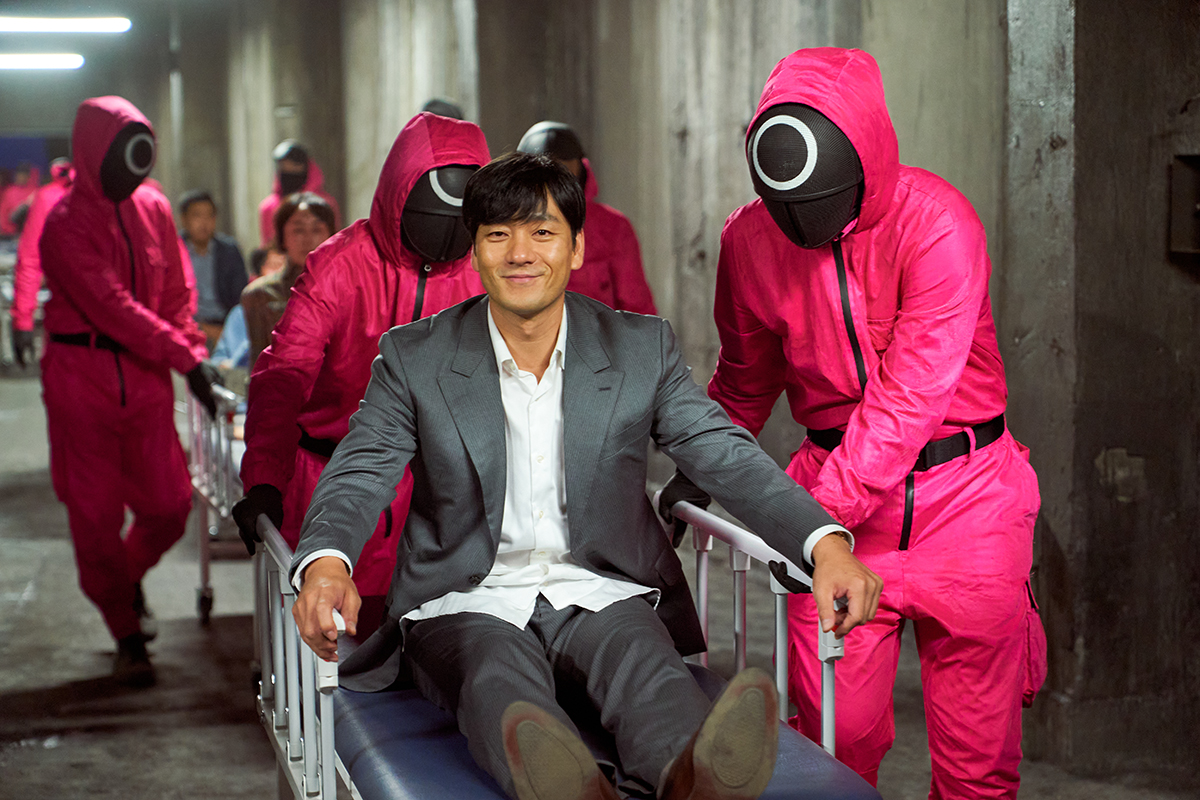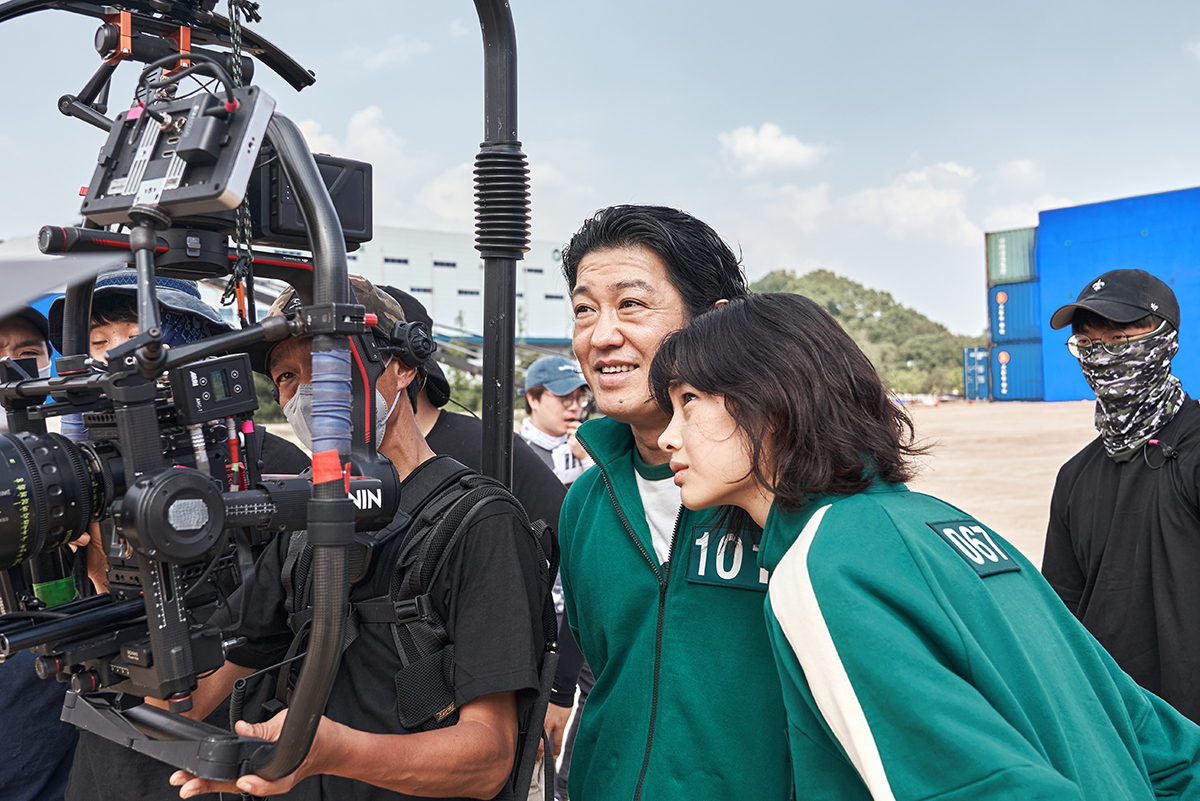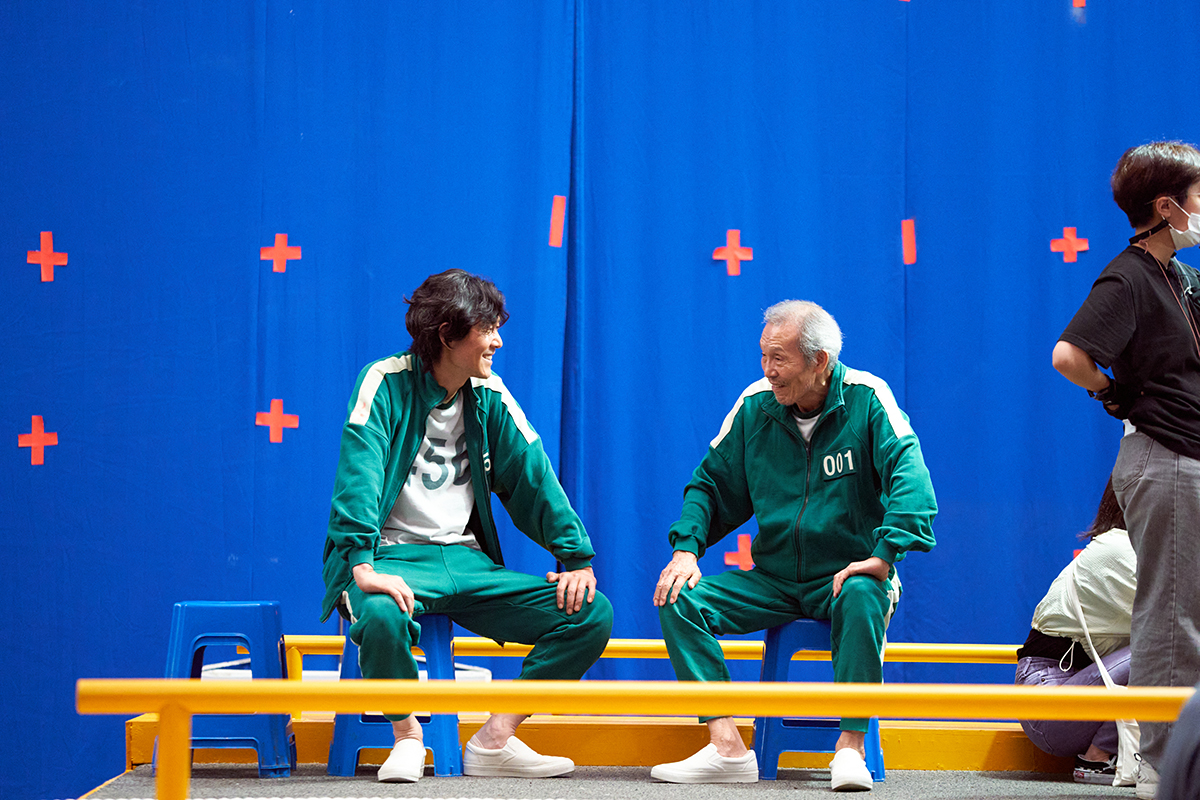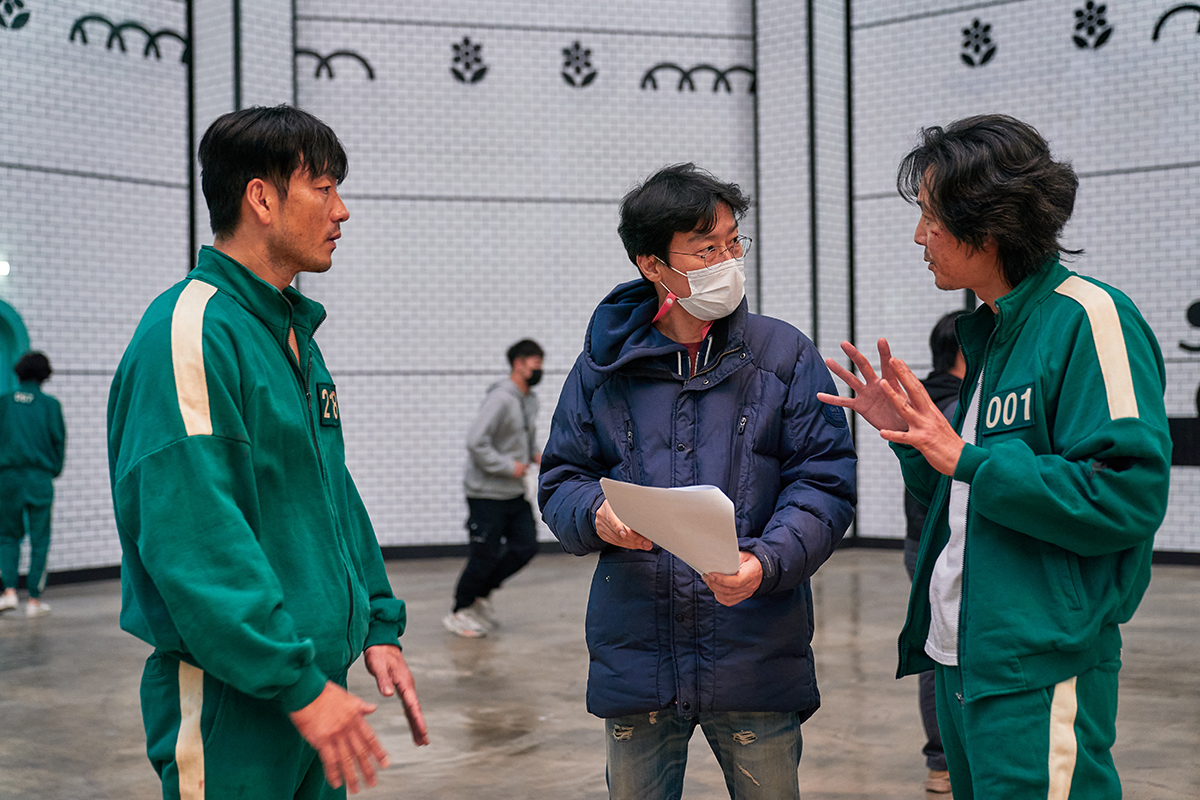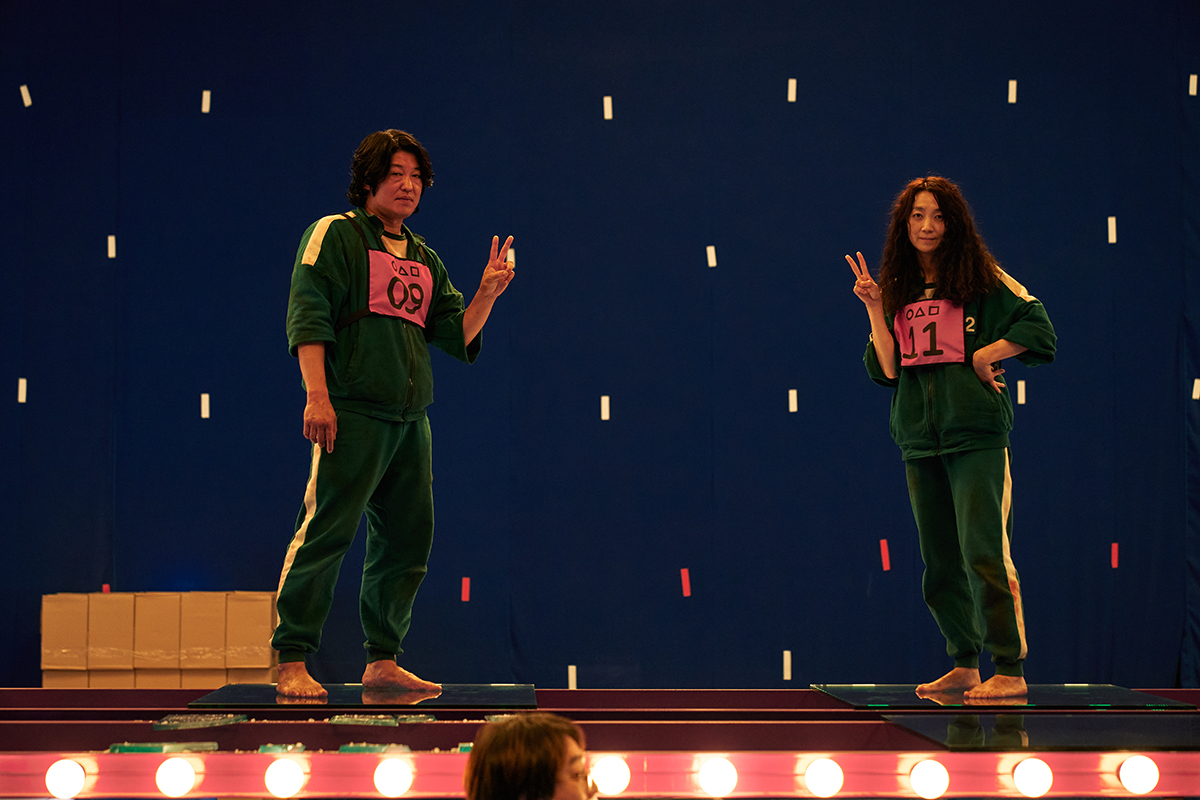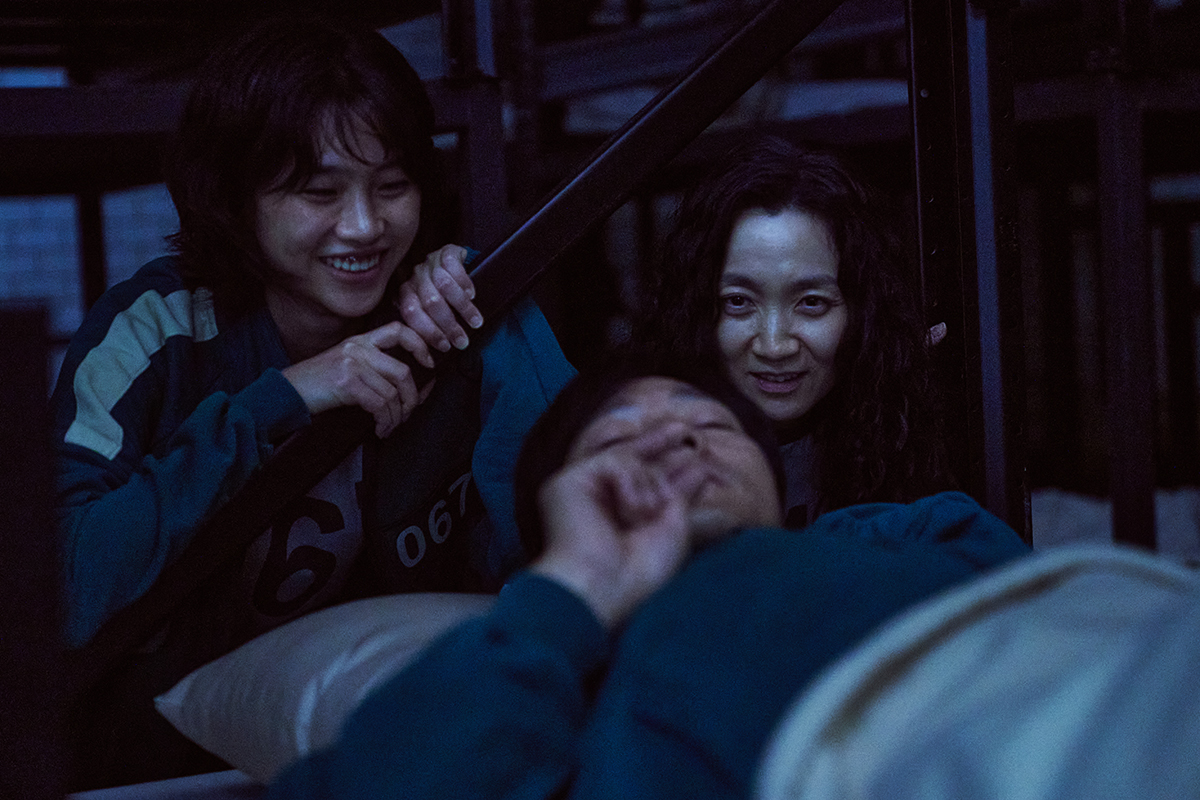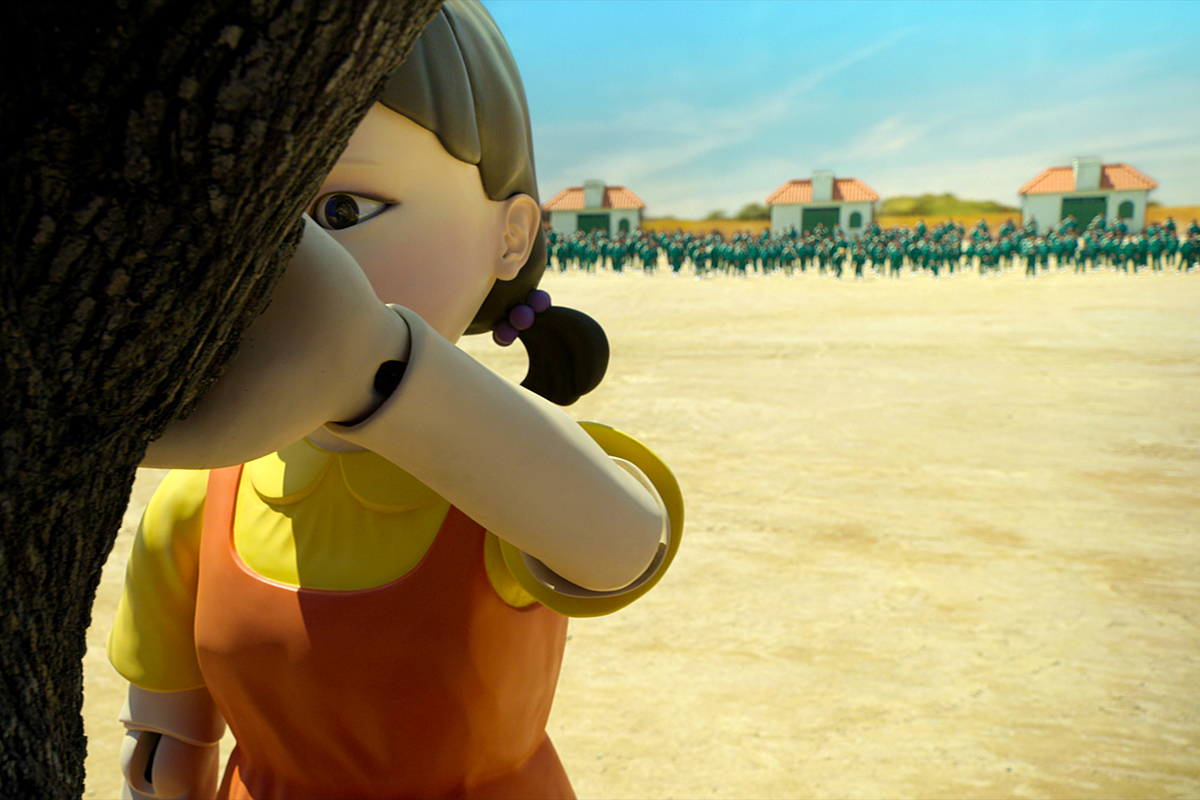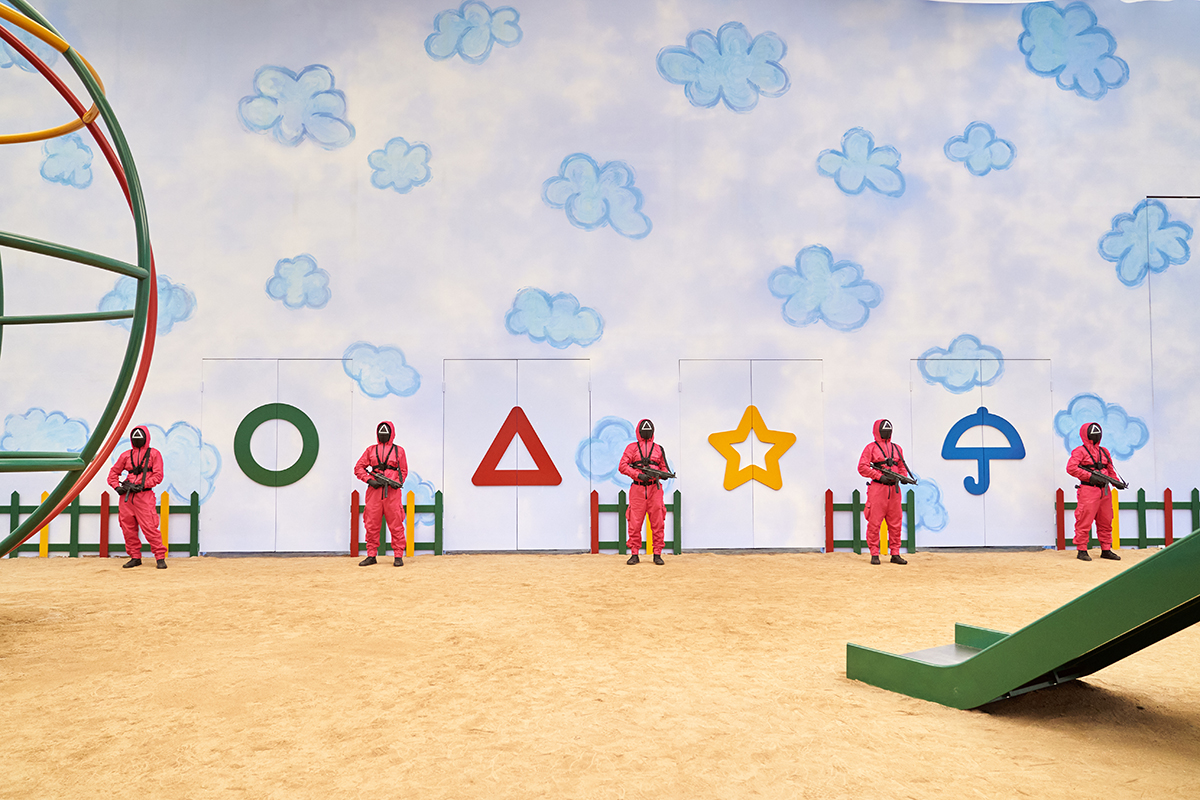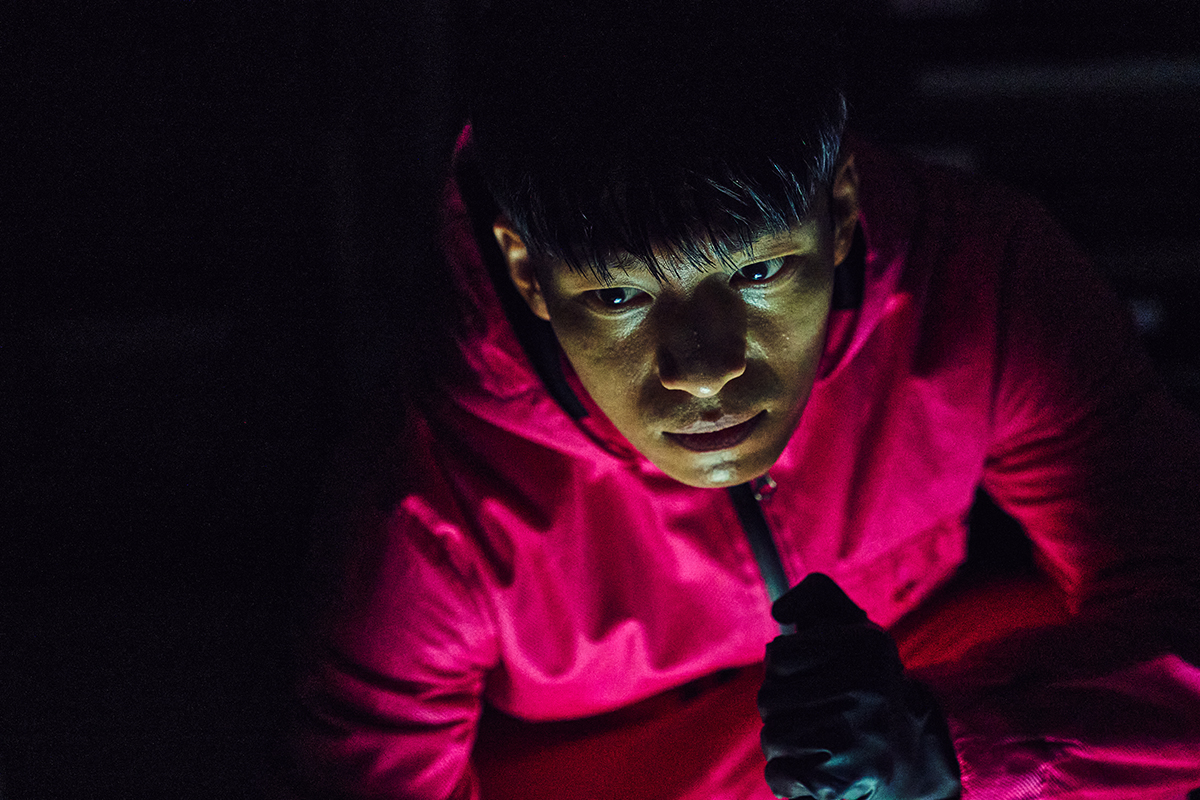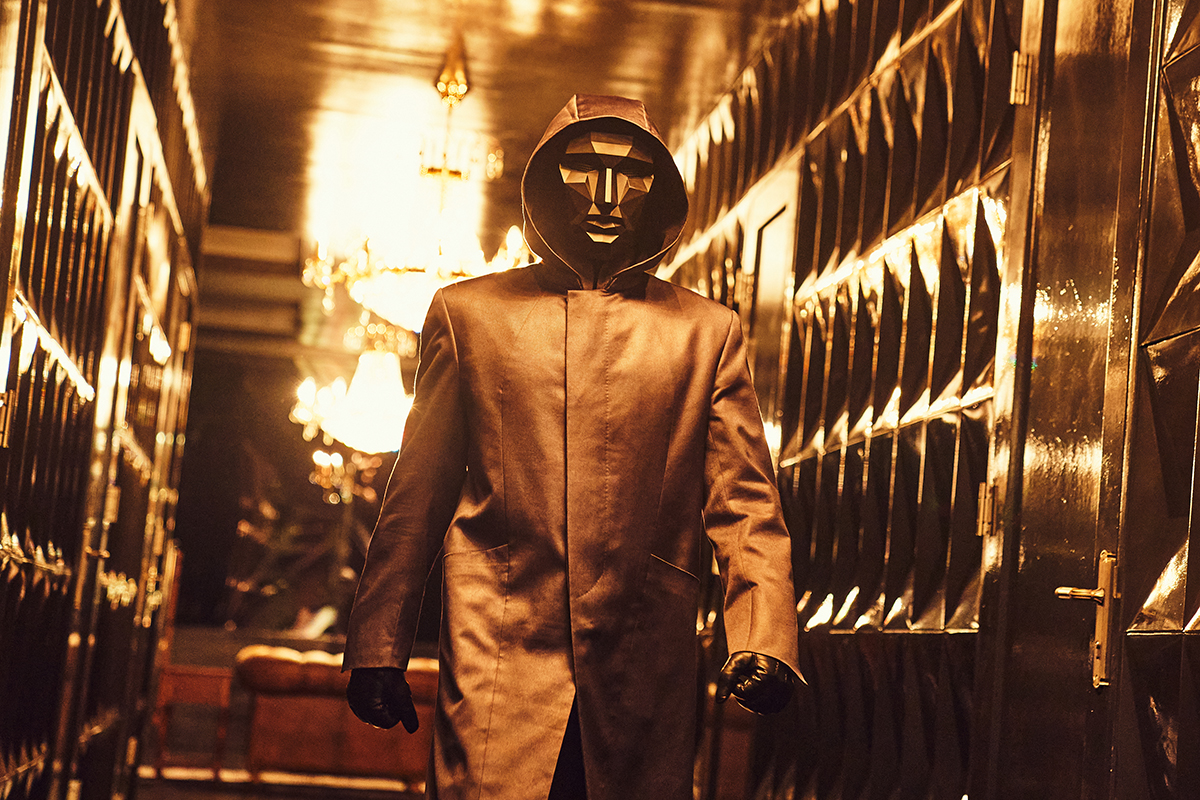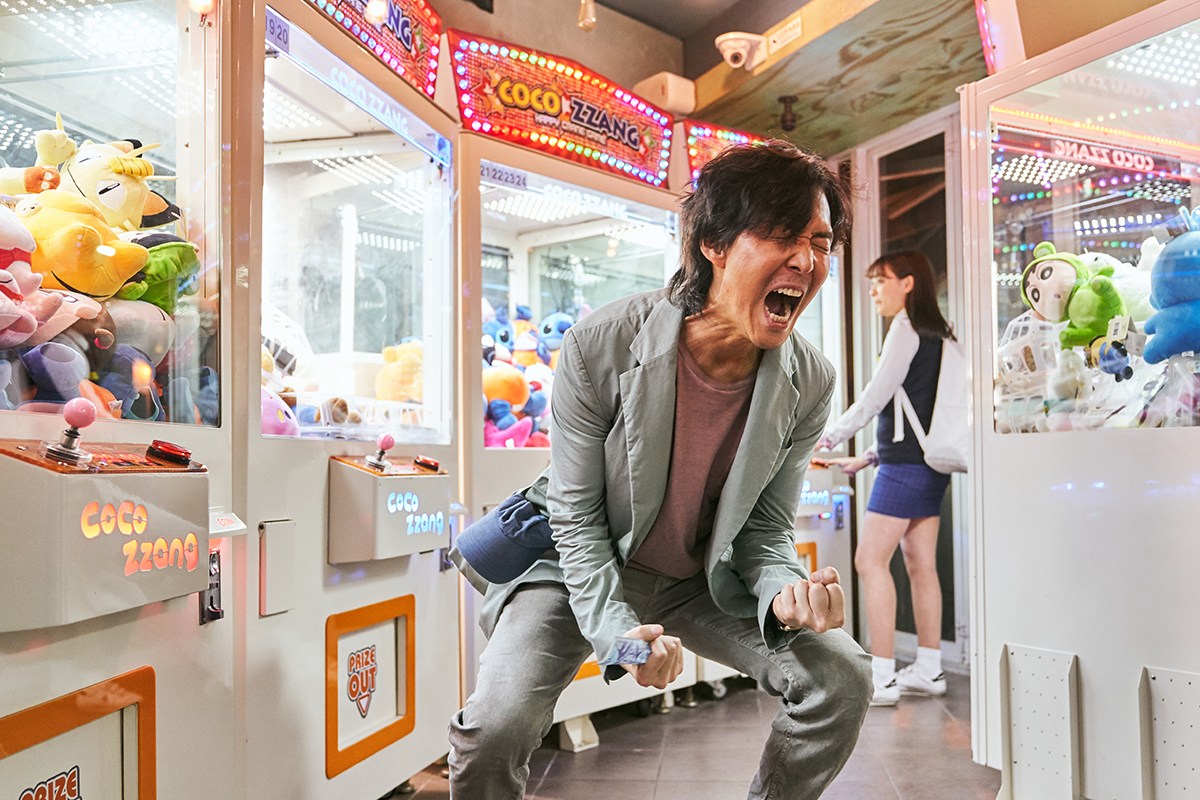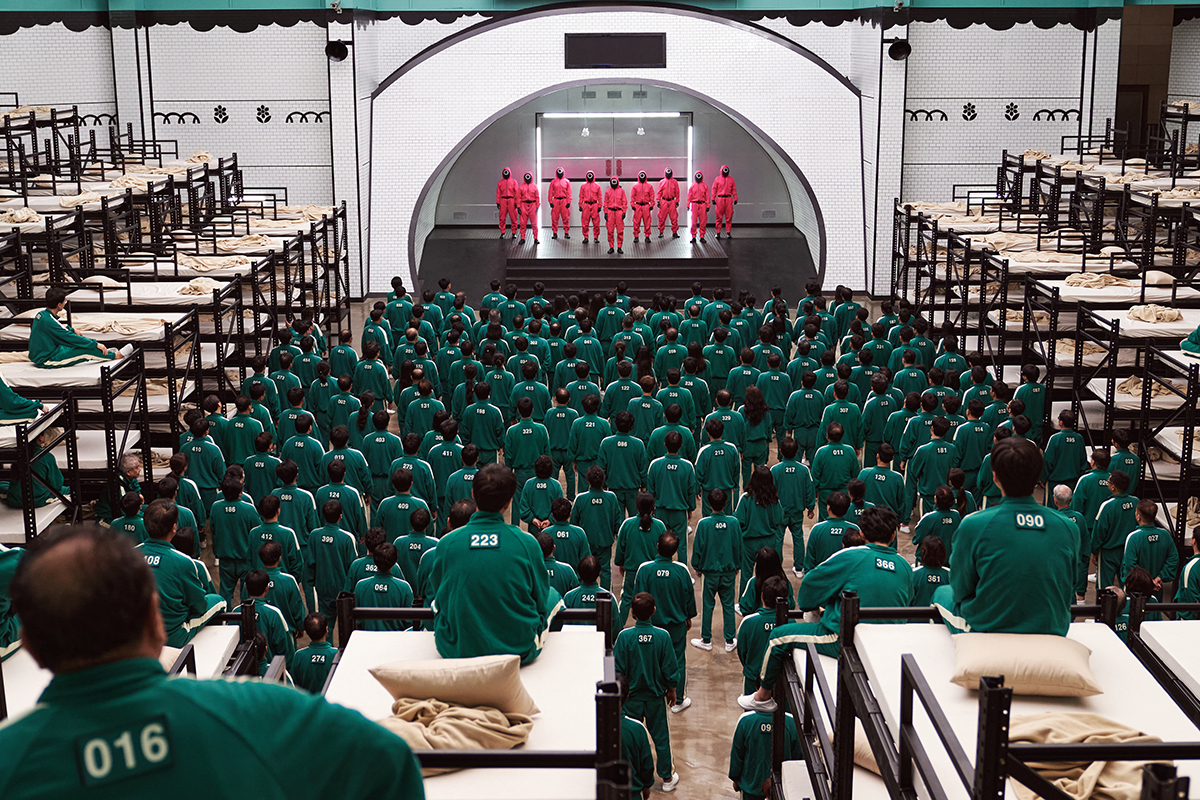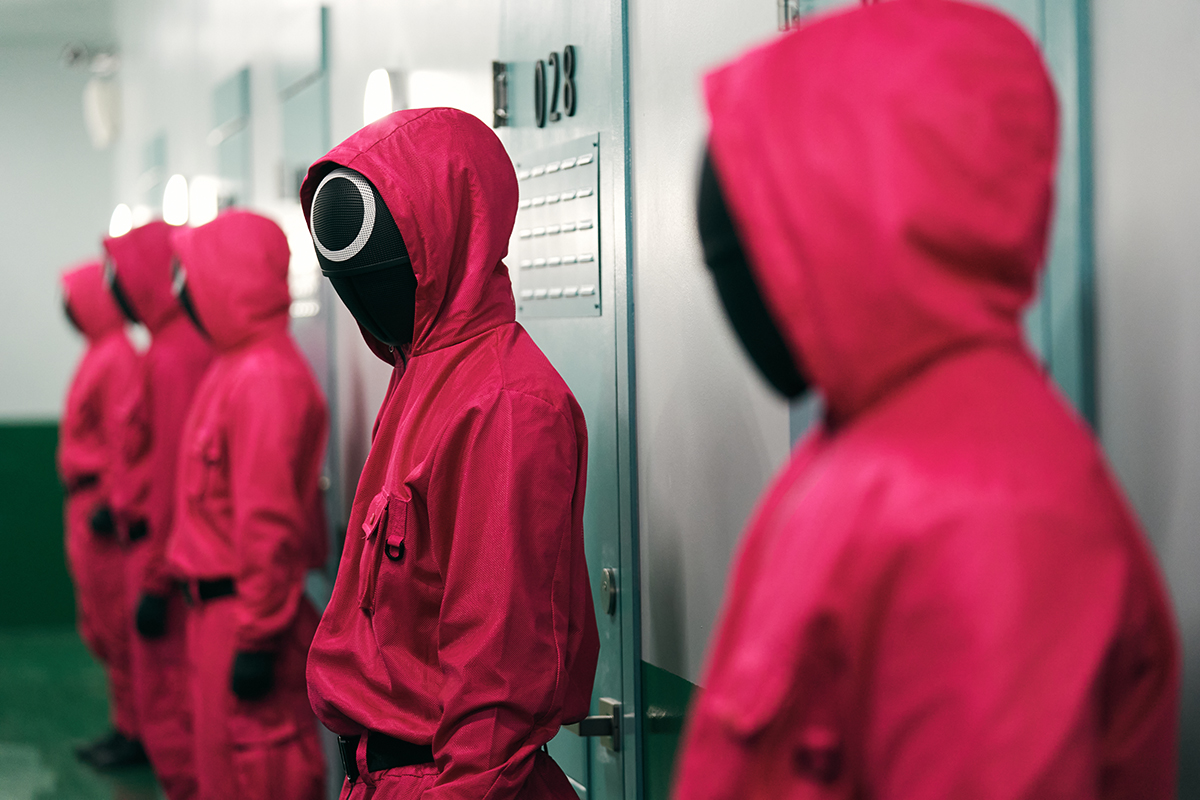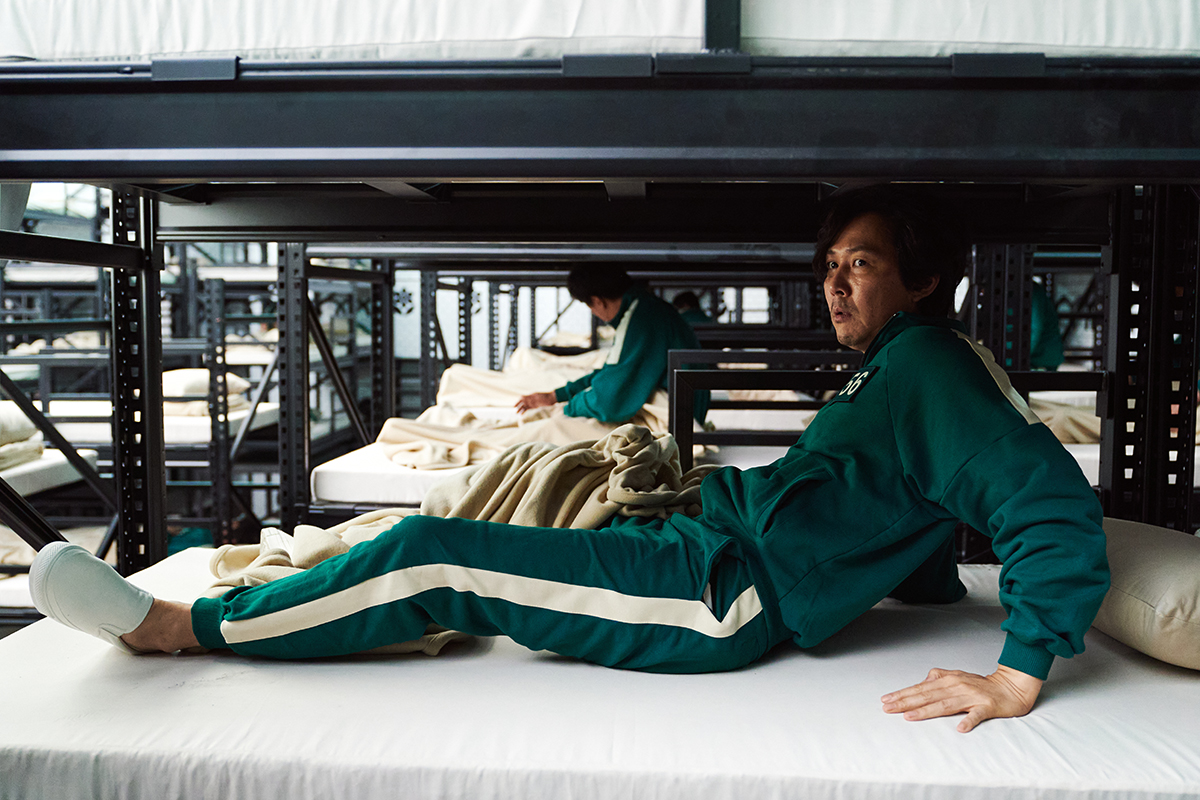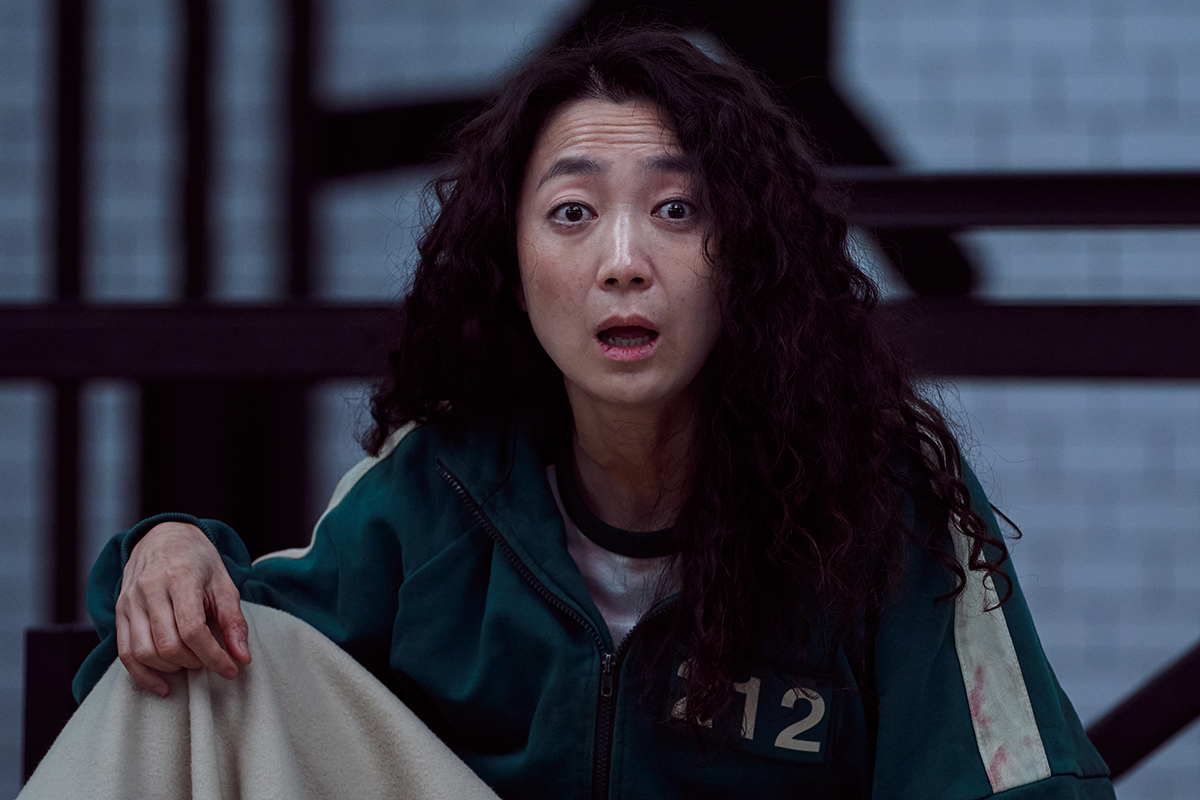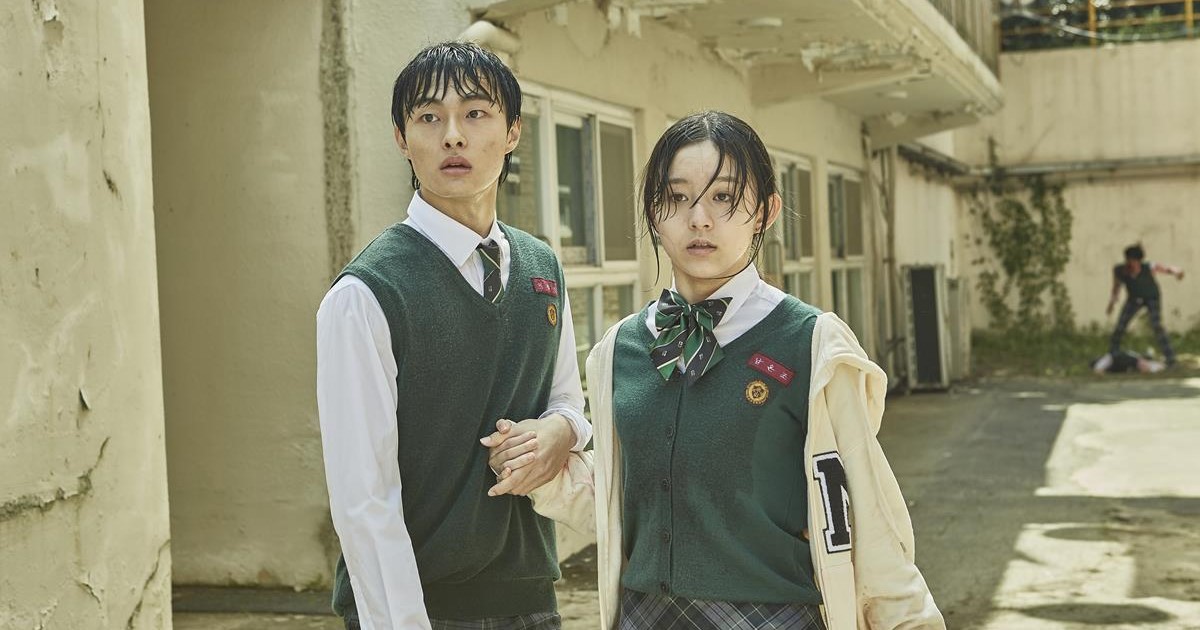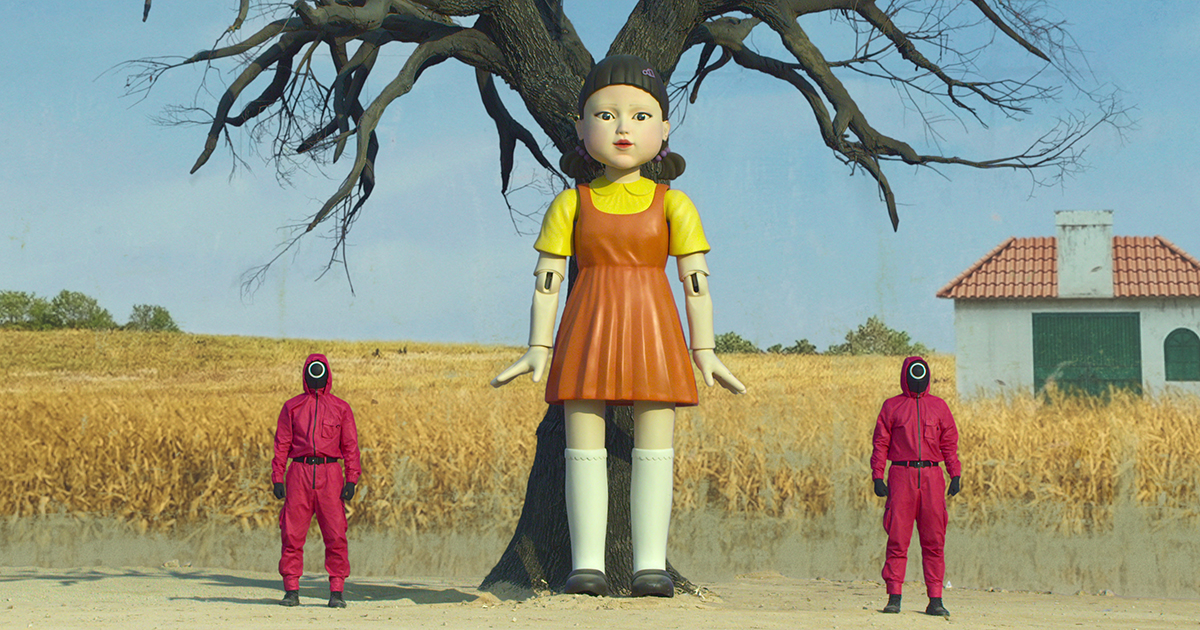
Squid Game is first and foremost highly entertaining, provided you’re not too squeamish. But the cognoscenti have latched onto it an allegory about capitalism, a satire on class war and a morality tale about a person’s worth in the mold of Oscar-winning Korean hit Parasite.
With good reason, too, since creator Hwang Dong-hyuk says that’s by design.
“I wanted to write a story that was an allegory or fable about modern capitalist society, something that depicts an extreme competition, somewhat like the extreme competition of life,” he told Variety.
The South Korean TV phenomenon tells the tale of financially broke people who risk their lives in a mysterious survival game that has a cash prize of $40 million.
READ MORE: ‘Squid Game’ Director Hwang Dong-hyuk on Netflix’s Hit Korean Series and Prospects for a Sequel (Variety)
It has a clearly hit a chord with international audiences since it has Netflix’s top show in more than 90 countries, with about 95% of viewers outside South Korea, Netflix told The Wall Street Journal.
As universal as its themes may be — and he wrote the show with an international audience in mind – the origins of Squid Game’s politics are peculiarly Korean.
“South Korean society is also very competitive and stressful,” Hwang explained. “We have 50 million people in a small place. And, cut off from the continent of Asia by North Korea, we have developed an island mentality. Some of that stress is carried over in the way that we are always preparing for the next crisis. In some ways it is a motivator. It helps us ask what more should be done. But such competition also has side-effects.”
Talking to Indian entertainment site Koimoi, Hwang added, “[Korea] is the only single country remaining divided in the world. The people of the same origin are divided because of the military tension and there are a lot of people staying in a small sized land.”
Not quite true if you live in Cyprus, but we’ll give him a pass.
He added: “We have a very hyper-connectivity with a high-speed internet so a lot of influences are being given and received among all the population living in this country.”
READ MORE: ‘Squid Game’ Director On What’s Making Korean Content Popular Globally: “It Is The Only Single Country Remaining Divided In The World” (Koimoi)
It’s an idea he conceived a decade ago and was apparently rejected by several studios not keen on such a seemingly bloodthirsty concept.
Eventually picked up by Netflix in 2019, it caught the zeitgeist because it’s a product of changing circumstance.
“The world has changed into a place where such peculiar, violent survival stories are actually welcomed,” he told Korea Times. “People commented on how the series is relevant to real life. Sadly, the world has changed in that direction. The series’ games that participants go crazy over align with people’s desires to hit the jackpot with things like cryptocurrency, real estate and stocks. So many people have been able to empathize with the story.”
READ MORE: Director shares backstory of global hit, ‘Squid Game’ (Korea Times)
When the Covid-19 pandemic hit the global economy, it exacerbated the disparity between the rich and the poor, Hwang told the WSJ. Even vaccine rollouts vary greatly based on whether a country is wealthy or not, he said. “The world has changed. All of these points made the story very realistic for people compared to a decade ago.”
Netflix should take some credit, not least for picking up a show others had rejected. You could argue it’s a case of one mega-hit in return for throwing money at the Korean market. The streaming company has spent $700 million for Korean films and television shows between 2015 and 2020, the WSJ reports, and has a $500 million pot earmarked for 2021.
READ MORE: Netflix’s ‘Squid Game’ Is the Dystopian Hit No One Wanted—Until Everyone Did (The Wall Street Journal)
Netflix needs original content as more and more of its back catalogue is redirected by the studios back to Peacock, Disney+, HBO Max, or wherever. Whichever algorithm or commissioner read the runes on Squid Game deserves plaudits since Netflix has highly prized IP on their hands (even if Hwang is shy about committing to a Squid Game 2 or a feature spin-off just yet).
The PlayStation-style game logos that introduce each episode and are repeated on guards’ visors and represent the final Squid Game itself have become merch and a meme.
The streamer also had a strong hand in guiding the show toward reaching a mass audience. With a potential language barrier, Netflix emphasized visuals, reports WSJ, outfitting competitors in green tracksuits (with guards in lurid pink) and building colorful sets resembling children’s playgrounds. Some of the rules for the traditional Korean games were simplified or altered.
It’s also been subtitled in 31 languages and dubbed in 13.
The director says that the games depicted in the series are easy to understand — not just for Koreans but the global audiences.
“(They) can understand the rules instantly and from a certain point afterwards they can not only understand the rules of the games but more the people and their emotions. That I would say sets Squid Game apart from other survival games.”
None of this is remotely subtle.
NOW STREAMING — BEHIND THE SCENES OF FAN-FAVORITE SERIES:
As the streaming wars rage on, consumers continue to be the clear winners with an abundance of series ripe for binging. See how your favorite episodics and limited series were brought to the screen with these hand-picked articles plucked from the NAB Amplify archives:
- “Severance:” Now, About Solving the Work/Life Balance…
- Entering “The Gilded Age”
- Class Is Definitely Not In Session: The Horror Delights of “All of Us Are Dead”
- “The Dropout” Is a Slow-Motion Car Crash (and We Can’t Look Away)
- How “Atlanta” Is “Everywhere and Nowhere”
“Hwang wants to tell us that we’re habituated to an absurd struggle from the moment we’re born—that we can’t imagine the end of capitalism because it shapes the way we think—so he shows us traumatized adults playing marbles at gunpoint,” writes Brian Phillips in The Ringer.
He points out that, unlike Battle Royale and The Hunger Games, Hwang’s characters are fully drawn and full of humanity. The violence is never made to look glamourous. Unlike Saw, it never becomes torture porn.
“Everything here, even the murder, is labor. For all but a few gold-masked VIPs, drudgery is inescapable; you’re a drone, even if you work in the cartoon villains’ megafortress.”
READ MORE: ‘Squid Game’ Is Gleefully Vicious and Violent, but Succeeds Best in Its Mundane Moments (The Ringer)
Squid Game‘s enormous global popularity has been a “dumbfounding” experience for Hwang, he told The Hollywood Reporter’s Patrick Brzeski. “There have been a lot of different layers of feelings,” he said.
“Of course, I’m exhilarated about the success,” Hwang continued. “And I’m dumbfounded that this could actually happen to a director like me. But then I am also reminded of the people that I was not able to pay attention to, or spend time with as much as I wanted to in the past. I had a girlfriend back then who I was not able to do very good things for, and we broke up right after I finished the original Squid Game script. So yeah, it’s been a really complex experience that I’ve had — emotionally and memory-wise — after the success of Squid Game.”
Hwang acknowledges that there is an enormous amount of pressure on him as “such a big audience” awaits a second game of Squid Game.
“Because of all that pressure, I haven’t decided yet whether or not I should do another season. But if you look at it in a positive way, because so many people loved season one and are expecting good things for season two, there are people everywhere in the world offering their opinions about where the show should go,” he told Brzeski. “I could actually pull ideas from fans all around the world to create the next season. I think that’s what I’m wrestling with right now — that I shouldn’t just view it as a huge amount of pressure, but think of all of this love and support I’m receiving as a big box of inspiration that I can leverage for season two.”
READ MORE: ‘Squid Game’ Creator Hwang Dong-hyuk Talks Season 2, Show’s Deeper Meaning (The Hollywood Reporter)
ALSO ON NAB AMPLIFY:
Squid Game’s cinematographer Lee Hyung-deok has been nominated for a 2022 Emmy Award for Outstanding Cinematography for a Single-Camera Series (One Hour) for his work on Episode 4, “Stick to the Team.” IndieWire’s Bill Desowitz calls the episode, which features a killing over a food shortage, an uprising, and a brutal tug of war game, “graphic, intense, and memorable for the flickering lights during the nightmarish and bloody uprising.”
Speaking with IndieWire’s Erik Adams and Chris O’Falt, Hyung-deok explained why he opted to use the RED Weapon Monstro 8K camera paired with a set of ARRI Master Primes:
“It seemed to me like the best option to play with multiple shooting formats while guaranteeing a resolution of 4K or higher,” he said. “I had a lot of room for maneuver in terms of the frame rate, and it was highly interoperable with various camera support equipment and handheld equipment, making it convenient to use when we needed mobility. Also, it provided enough latitude in color reproduction, making it a good fit for outdoor shots in the dark. Overall, the high-definition footage was easy to work with — to add computer graphics and all — and we were able to finish post-production successfully.”
READ MORE: ‘Squid Game’ Could Make Emmy History for Netflix — Will Crafts Be Part of the Story? (IndieWire)
READ MORE: Emmys 2022: Cinematography Nominees on How They Shot the Year’s Best Shows (IndieWire)
Want more? Squid Game editor Nam Na-young joins Filmmaker U to talk about her work on the series, her career in feature films, and Korean filmmaking:
Na-young also discusses “the tension and intensity” in her Emmy-nominated episode, “Ggangbu” with GoldDerby. Forced to pair off in a deadly competition, the characters play marble games inspired by their childhood:
In the video below, Squid Game cast members Lee Jung-jae and O Young-su sit down with In Creative Company’s Mara Webster for a Q&A on the Netflix series:
You can also go behind the scenes of the cover shoot with Squid Game stars Jung-jae, Jung Ho-yeon, and Park Hae-soo for issue 8 of Netflix Queue:
Writer and director Hwang Dong-hyuk takes a deep dive into the making of Squid Game with cast members Jung-jae, Ho-yeon, and Hae-soo:
Dong-hyuk discusses Oscar-winning filmmaker Bong Joon-ho’s (Parasite, Okja) work and creative process. In this featurette from Netflix, the two filmmakers share the joys of exposing actors to international audiences, universal themes of social construct that played into Squid Game’s story of desperation in a capitalist society, and more:
South Korean screenwriter, film director, producer and former film critic Park Chan-wook sits down with Variety’s Elizabeth Wagmeister at the Canned Film Festival to talk about Squid Game and Parasite, and how they both helped elevate Korean filmmakers:
Check out how Squid Game visual effects supervisor Cheong Jai-hoon worked to create the dreadful glass bridge sequence from episode seven:


